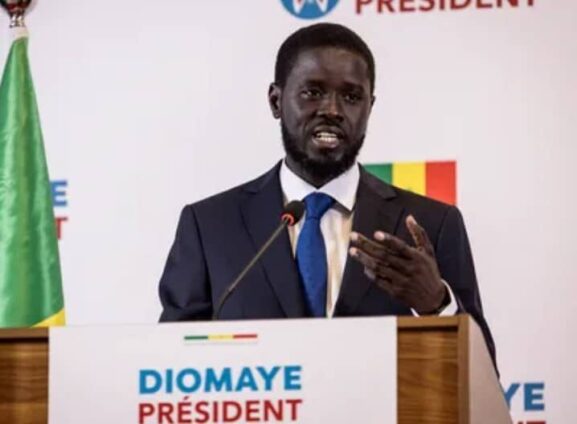A likely absolute majority for President Bassirou Diomaye Faye's Pastef party in Senegal's legislative election would empower him to pursue his ambitious 25-year agenda, though his first challenge will be coming up with a budget amid a fiscal crisis.
Faye sought a clear parliamentary majority in Sunday's vote to implement the reform agenda that helped sweep him to power in a landslide election victory in March.
But analysts say creating a budget catering both to his voters' needs and to the International Monetary Fund (IMF), with which his government is currently in talks, will be challenging.
Former president Macky Sall, who headed an opposition coalition, on Monday congratulated Pastef on its win. Former prime minister Amadou Ba, who ran against Faye in the presidential election, also conceded defeat, as did other opposition leaders.
Senegal's sovereign debt rose in price on Monday, Tradeweb data showed, while most other African nations' bonds lost ground. The yield on its 2033 dollar bond was down about 10 basis points by 1145 GMT at 9.28%.
"If confirmed by the electoral bodies, Pastef's victory could give a free hand in passing budgets and implementing its programmatic reforms," said Wendyam Lankoande, a consultant at Africa Practice.
But, he noted, voters are "looking for quick solutions to unemployment, rising cost of living, and limited reach of public services in remote rural areas in the hinterland".
In September, a government audit revealed that Senegal's debt and budget deficit were much wider than the previous administration had reported. A $1.9 billion IMF programme agreed in June 2023 has been on hold since.
Negotiations with the IMF to restart disbursements could last until mid-2025.
"We see Pastef's majority as a positive development as it clears the path for President Faye and (Prime Minister Ousmane) Sonko to begin work on a budget for 2025 that aligns broadly with IMF requirements," said Leeuwner Esterhuysen, senior economist at Oxford Economics Africa.
"That said, some of these requirements won't necessarily go down well with Senegalese citizens."
He said the Fund was likely to show some leniency, as it appears to have good relations with the new administration.
"We think the government may be able to delay the implementation of harsh measures such as removing VAT exemptions on farming inputs or increasing household electricity prices, while energy subsidies will be phased out gradually to limit the impact on consumers," Esterhuysen said.
Latest Stories
-
Empowering entrepreneurs: US government pledges support for women businesses
35 mins -
Security retooling projects strengthen Ghana’s capabilities against threats – Akufo-Addo
39 mins -
Savannah Regional Peace Council sensitises students on violent extremism
43 mins -
NCCE organises dialogue for parliamentary candidates in Ada constituency
44 mins -
Current economic challenges exceed the 1999 – 2000 crisis – Goosie Tanoh
46 mins -
Emancipate yourself from all political slavery – Independent Candidate
47 mins -
Ekumfi people urged to be ambassadors of peace
48 mins -
Kwahumanhene destooled for misconduct – Kwahumanhemaa confirms
53 mins -
Fatal accident in Binduri claims one life, leaves several injured
56 mins -
‘Don’t be trigger-happy’ – Saanie Daara on calls to sack Otto Addo, GFA leadership
1 hour -
EC trains visually-impaired voters in Ahafo on proper use of tactile jacket
1 hour -
Alan to establish ‘Creative Arts Development Fund’ to empower talented creatives
1 hour -
Bono Regional Minister calls for a strengthened local government system
1 hour -
Government constructing housing units for Agenda 111 hospitals
1 hour -
Over 13,585 civilians killed or injured as Russian aggression against Ukraine reaches 1,000 days
1 hour

